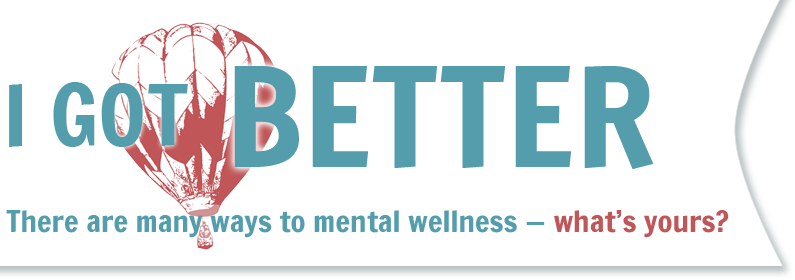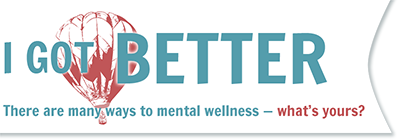Proud to Be Who I Am

I sometimes wonder if I need these medications at all. It started as child when I was diagnosed with ADD. The doctors put me on Ritalin, which I reacted to, so then they experimented with upping the doses and different drug cocktails. I remember once, when I was in middle school, I was up at five thirty on a school night daydreaming about staging a military coup. It sounds ridiculous in retrospect, but those medications did that to me. And to the doctors, more medications were the solution. I ended up refusing to take any medications when I was in high school, but I abused caffeine substantially to replace the stimulant effect of Ritalin type drugs, and I ended up having side effects as well. When I was in my early twenties, I was hospitalized with psychosis. I realize now that a lot of things could have caused this, including the copious amount of caffeine that I was consuming, but the doctors diagnosed me with schizophrenia and avoidant personality disorder. I ended up taking heavy doses of antipsychotics for years, developed tardive dyskinesia, and I did this happily because my experience with psychosis was so unpleasant, and I believed them. In grad school, I asked to be put on Strattera for ADD, and I had a manic episode. Schizophrenia was gone, and I was diagnosed afterwards with bipolar disorder II, and most recently, panic disorder with agoraphobia. Being treated for anxiety has been helpful. The mood stabilizer is helpful too, although I feel less creative. It took years to convince psychiatrist to lower my dose. He never owned up to my side effects. He ended up committing suicide while under a storm of malpractice lawsuits, and I found out that he was dead in a session with my psychologist, who told me that he was the executor of his estate. He was covering for him the whole time.
During your mental health care, have you often felt hopeful about your chance of getting better?
Yes. I was treated as though I was a lost cause while I was misdiagnosed with chronic paranoid schizophrenia. However, at that time, I earned a bachelors degree and worked 40 hours a week.
During your mental health care, have you often felt hopeless about your chance of getting better?
Yes. When I recovering from a misdiagnosis, well, it made it impossible to understand myself. I lost hope when I was diagnosed with bipolar disorder. And at the same time, I had anxiety, which is caused or exacerbated by caffeine abuse. I had no idea what anxiety is or like or how it affected me, and my psychologist probably knew this and obscured it from me to protect that psychiatrist. The antipsychotic drugs caused obsessive compulsive symptoms, which generally involve a kind of self loathing and lack of faith in myself. I didn’t understand this until years later.
Has a mental health provider ever told you that you could not reach a personal goal because of your psychiatric diagnosis (for example, education, career, independent housing, relationship, children, etc.)?
Yes. A psychologist told me that I couldn’t go to medical school because I had schizophrenia.
If you overcame hopelessness that you could get better from a mental health or emotional problem, was there a turning point for you?
I am pretty much alone with this disease. There is a lot of stigma where I live, so everybody like me hides as much as they can. So to find a sense of identity, I studied what I later came to find out is called mad history. I researched eugenics, madhouses, lobotomies. I came to the conclusion that it is them against us. Maybe normality is an artificial and meaningless construct, but it exists, and it has disenfranchised me. In 1997, I was thrown to the ground and injected with harsh medications without my consent. The orderlies who did that to me were “normal.” They did it because I am not. And when I look at the media, at the ridicule, the abuse, the parading of mentally ill celebrities and talent show contestants to satisfy a sense of smugness and propriety, and I am proud to be who I am. I have seen what normal is from the ground looking up and I want no part of it. I discovered Mindfreedom International around that time, and I am very glad I did. I hope to open a chapter in my hometown and stop the abuses that happen every day here.
If you could send a brief message to someone receiving mental health care today who is feeling hopeless about getting better, what would you say?
There’s a light at the end of the tunnel. Sometimes we can’t see it, but it is there.
Can you give examples showing you have gotten better from a mental or emotional problem, such as how you are doing well or accomplishing goals you have chosen?
[I got a] bachelor’s degree and master’s degree while working full time. Married with one child. I own my home and car. I have very few friends, but they are close and I don’t have to pretend around them. I’ve held down the same job for 10 years, and I’ve been with my wife for 7.


